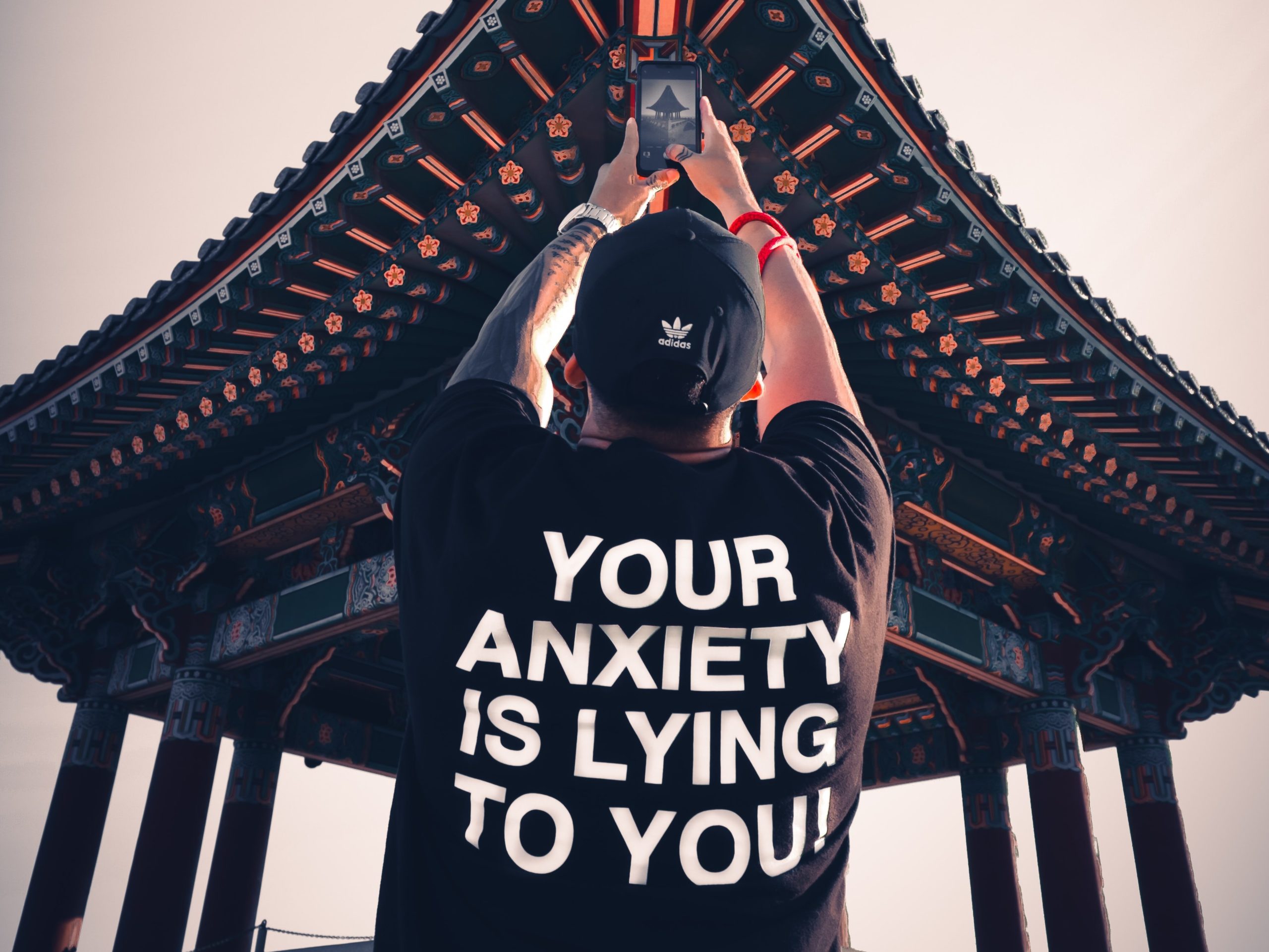7 Quick Tips For Coping With Anxiety: Simple Skills To Take Back Control
December 10, 2022

Is anxiety normal?
Anxiety is a feeling of worry, unease, restlessness, fear, or dread. We may feel anxious about things that are about to happen or believe could happen in the future.
Anxiety is far from a rare occurrence. The truth is that everyone feels anxious from time to time. People often experience anxiety during stressful events or when they face changes in life. Although feeling anxious can be uncomfortable, experiencing anxiety on occasion is a normal part of life.
It is natural for the brain and body to respond to stress (or a perceived threat) by producing various mental, emotional, and physiological symptoms. For example, the fight-or-flight reaction associated with anxiety can cause an increased heart rate, sweaty hands, or an upset stomach. Worrying thoughts, nervousness, and tension are also typical responses your body and mind may use to alert you to potential dangers.

what’s the difference between nervousness and an anxiety disorder?
Normally, periods of nervousness or anxiousness are temporary. But anxiety levels span a wide spectrum from normal to clinical levels. Individuals with anxiety disorders may experience more persistent and long-lasting reactions.
The intense emotions they face can adversely affect day-to-day life and cause significant distress. Excessive worry, hyperarousal, and an active avoidance of anxiety-provoking situations are some clues that the anxiety you are experiencing may be more severe.
You are not alone if you have trouble coping with anxiety or if it has started to interfere with your life.
According to the Anxiety and Depression Association of America, about 40 million adults experience an anxiety disorder each year. That makes anxiety the most common mental disorder in the U.S.

can anxiety be managed?
Fortunately, anxiety can be effectively managed. Depending on the severity of symptoms, one or more treatment strategies may be used to help people living with anxiety regain control of their lives. Therapy, exercise, meditation, coping skills, medication management and targeted approaches for specific types of anxiety can be helpful in the recovery process.
Your level of anxiety at any point in time can be influenced by several factors. Your personality, gender, coping strategies, life experiences, and other dynamics can affect how anxious you feel and how you react both internally and externally.
Since this article aims to be actionable, we will cover a few beneficial coping strategies you can add to your toolbox.
Keep in mind that anxiety may cause you to freeze up. Instead of taking steps to manage anxiety when you find yourself in an unexpected situation, you may feel unable to act as feelings of worry or panic ramp up.
Read through these skills and save them to your device (or write them down somewhere accessible) so you have a plan on hand. Having a plan can help you address the situation quickly and avoid feeling consumed by anxiety.

7 Simple Anxiety Coping Skills
1. Examine your thought patterns
Challenge your fears and question their validity.
2. Slow down and focus on your breath
Try square breathing or color breathing.
3. Write it down
What is making you anxious? Writing it down can diffuse anxiety and ease overwhelm.
4. Take care of your body
Get sleep, eat nutritious food, and make time to move.
5. Try progressive muscle relaxation
Check in with yourself from head to toe, telling yourself to release tension as you go.
6. Try a grounding exercise
Focus on your 5 senses, place your hands in cool running water, or light a scented candle.
7. Find a distraction, if necessary
if you find yourself dwelling on anxious thoughts, it may help to watch a movie, engage in a pastime, or spend time with a friend to relax into a better mindset to manage anxiety.

When to seek therapy for anxiety
If you find yourself continually struggling against the effects of anxiety (or find yourself relying too heavily on distractions to ease discomfort) it may be time to speak with a therapist. Therapists who treat anxiety can help you discover the root cause of recurring and persistent symptoms and come up with a customized treatment plan for your improvement.
In therapy, you can learn to identify your anxiety triggers and learn to manage and cope effectively. Your therapist can help you adapt as you learn how to break patterns, reframe your thoughts, and adjust your behaviors.
Anxiety does not have to continue taking over your life. All anxiety disorders can be treated and symptom improvement is possible in all cases. Contact our team to learn more about therapy and treatment options for anxiety at any of our Andrews & Associates Counseling locations.

About the Author
Liza Womack
Former Director of Marketing and Communications at Andrews & Associates Counseling.
Suggested Reading
- Wild, Wonderful Love Relationship Retreat: September 16-17, 2023Andrews & Associates Counseling will be hosting the next Wild, Wonderful Love Relationship Retreat on Saturday, September 16 and Sunday, September 17, 2023 at Bluemont Hotel… Read more: Wild, Wonderful Love Relationship Retreat: September 16-17, 2023
- The Benefits of Seeing an Intern Therapist: Everything You Need to KnowSeeing an intern therapist can provide many benefits that you may not be aware of. In this article, we will explain exactly why they should be… Read more: The Benefits of Seeing an Intern Therapist: Everything You Need to Know
- How Employee Assistance Programs Support Workplace Mental HealthWhen it comes to employee wellbeing, things are not always as they seem… Employees are often expected to be high performers. They are typically required to… Read more: How Employee Assistance Programs Support Workplace Mental Health
- 3 Crucial Things to Understand About Survivors of Child Sexual AbuseIt is time to give the power back to the survivors… A Voice for Trauma Survivors My name is Dr. Briana Nelson Goff. My professional background… Read more: 3 Crucial Things to Understand About Survivors of Child Sexual Abuse
Counseling & Therapy for Individuals, Couples, Families, and Groups
terms & conditions
disclaimer
privacy policy
© andrews & associates counseling
Manhattan Main Office
4201 Anderson Ave., D110
Manhattan, KS 66503
Phone: 785-539-5455
A&A Kids Clinic
227 Blue Earth Place, Suite 203-c
Manhattan, KS 66502
Phone: 785-776-0749
Junction City Office
929 South Washington
Junction City, KS 66442
Phone: 785-539-5455
Wamego Office
1800 Farrell Drive
Wamego, KS 66547
Phone: 785-539-5455